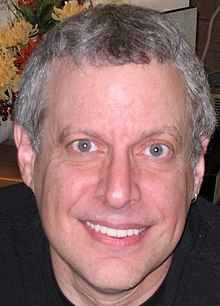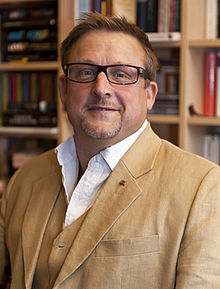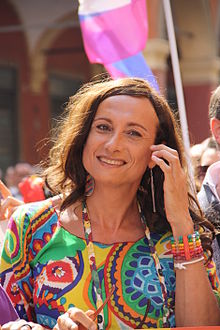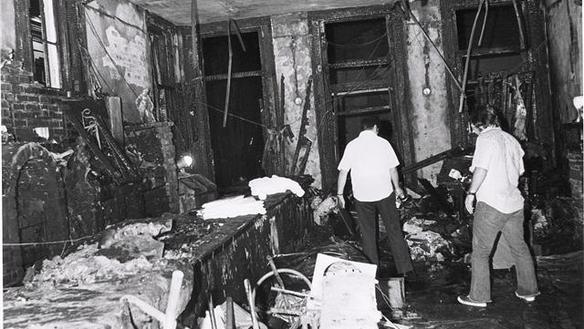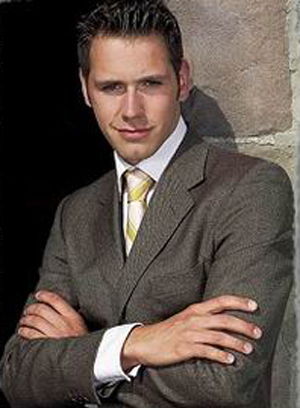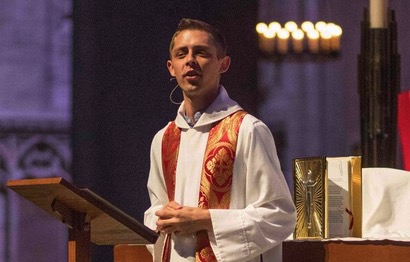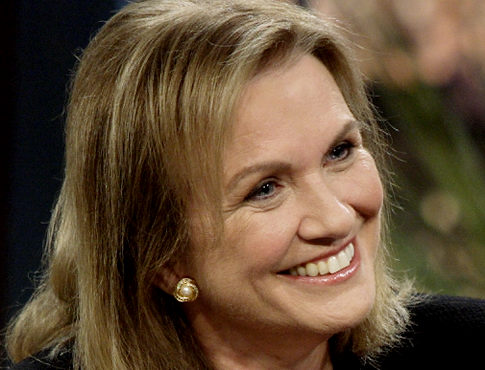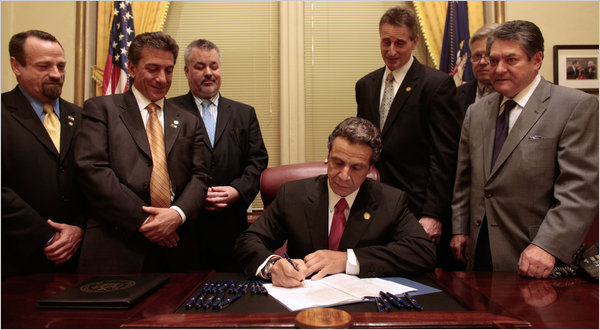|
presents THIS DAY IN GAY HISTORY based on: The White Crane Institute's 'Gay Wisdom', Gay Birthdays, Gay For Today, Famous GLBT, glbt-Gay Encylopedia, Today in Gay History, Wikipedia, and more …
Collected by Ted June 24 [{(o)}]|[{(o)}]|[{(o)}]|[{(o)}]| [{(o)}]|[{(o)}] 1730 – Amsterdam: Five men who had been found guilty of sodomy two days earlier are executed. Pietr Marteyn, Janes Sohn, and Johannes Keep are strangled and burned. Maurits van Eeden and Cornelis Boes are drowned in a barrel of water.
1850 – Horatio Kitchener, the 1st Earl Kitchener of Khartoum and British field marshal was born on this date (d.1916). Brits howled in outrage at the publication of Douglas Plummer's Queer People, a general history of homosexuality that sought to prove to the English people that Gayness was not limited to Oscar Wilde and a few assorted French couturiers. The book named names, among them, Kitchener, one of the great heroes of English Imperialism. The proponents of the case point to Kitchener's friend Captain Oswald Fitzgerald, his "constant and inseparable companion," whom he appointed his aide-de-camp. They remained close until they met a common death on their voyage to Russia. From his time in Egypt in 1892, he gathered around him a cadre of eager young and unmarried officers nicknamed "Kitchener's band of boys." He also avoided interviews with women, took a great deal of interest in the Boy Scout movement, and decorated his rose garden with four pairs of sculptured bronze boys. According to one biographer, "there is no evidence that he ever loved a woman." A contemporary journalist remarked that Kitchener "has the failing acquired by most of the Egyptian officers, a taste for buggery". J. B. Priestley noted in his book on "The Edwardians" that one of Lord Kitchener's personal interests in life included planning and decorating his residences. He was also known to collect delicate china with a passion (such allusions to an 'artistic temperament' were a common code for implying homosexuality at that time). Here in Canada, in a surge of patriotism in 1916, in the middle of WWI, the town of Berlin, Ontario, even with strong German ties among its populace, voted to change the name to Kitchener. The British general had receently died.
1875 – Forrest Reid (d.1947) was an Irish novelist, literary critic and translator. He was, along with Hugh Walpole and J M Barrie, a leading pre-war British novelist of boyhood. He is still acclaimed as the greatest of Ulster novelists. Born in Belfast, Northern Ireland, Reid entered Christ's College Cambridge in 1905, and was influenced there by the novelist E.M. Forster. After graduation Forster continued to visit Reid, who was then settled back in Belfast, and they remained lifelong friends. As well as his fiction, Reid also translated poems from the Greek Anthology Greek Authors (1943). His study of the work of W B Yeats W B Yeats: A Critical Study (1915) has been acclaimed as one of the best critical studies of that poet. He also wrote the definitive work on the English woodcut artists of the 1860s; his collection of original illustrations from that time are housed in the Ashmolean Museum, Oxford. He was a close friend of Walter de la Mare, whom he first met in 1913, and about whose fiction he published a perceptive book in 1929. Reid was also an influence on novelist Stephen Gilbert, and had good connections to the Bloomsbury Group of writers. Reid was a founding member of the Imperial Art League (later the Artists' League of Great Britain). Though his books are not necessarily well known today, he has been labelled 'the first Ulster novelist of European stature', and comparisons have been drawn between his own coming of age novel of Protestant Belfast, Following Darkness (1912), and James Joyce's seminal novel of growing up in Catholic Dublin, A Portrait of the Artist as a Young Man (1924). His Following Darkness (1912) is said to have been an inspiration for Joyce's Portrait. Reid's fiction, which often uses submerged narratives to explore male beauty and love, can be placed within the historical context of the emergence of a more explicit expression of homosexuality in English literature in the 20th century. While still in his twenties, Reid correctly surmised that Henry James was Gay and dedicated his mildly homosexual novel The Garden God: A Tale of Two Boys (1905) to the American writer. James, true to his nature, was not flattered and publicly condemned the book for its "artless portrayal of sinister matters." A later book was dedicated to E.M. Forster, who was delighted. It was to Reid that Forster felt able to write about the loss of his beloved Charles Mauron in the Second World War. In 1952 Forster traveled to Belfast to unveil a plaque commemorating Forrest Reid's life. A 'Forrest Reid Collection' is held at the University of Exeter, England; consisting of first editions of all his works and books about Reid. Many of his original manuscripts are in the archives of the Belfast Central Library.
1901 – The American composer and instrument builder Harry Partch, was born on this date (d.1974). Partch was one of the first twentieth-century composers to work extensively and systematically with microtonal scales, writing much of his music for custom-made instruments he built himself. It is said that Partch was sterile, probably due to childhood mumps. Although he seemed to consider himself bisexual, most of Partch's loving relationships were with men, including with the actor Ramón Samaniego. Samaniego is better known as the actor Ramón Novarro. This affair occurred in Partch's youth, while he was working as an usher for the Los Angeles Philharmonic. Samaniego/Novarro broke off the affair when he started to become successful in his acting career. Partch supported himself during in his youth doing a variety of jobs, including teaching piano, proofreading, and working as a sailor. Under the pseudonym Paul Pirate, he wrote pop songs which he tried to sell to publishers; for a time, he wrote a song daily. Only "My Heart Keeps Beating Time" (1929) found a publisher, and is the only of these songs to survive. In New Orleans in 1930, he decided to break with the European tradition in music entirely, and burned all his earlier scores in a potbelly stove. In 1934, The Carnegie Corporation of New York granted him $1500 so he could do research in England. He gave readings at the British Museum and travelled in Europe. He met W. B. Yeats in Dublin, whose translation of Sophocles' King Oedipus he wanted to set to his music; he studied the spoken inflection in Yeats's recitation of the text. He built a keyboard instrument, the Chromatic Organ, which used a scale with forty-three tones to the octave. He met musicologist Kathleen Schlesinger, who had recreated an ancient Greek kithara from images she found on a vase at the British Museum. Partch made sketches of the instrument in her home, and discussed ancient Greek music theory with her. Partch returned to the U.S. in 1935 at the height of the Great Depression, and spent a transient nine years, often as a hobo, often picking up work or obtaining grants from organizations such as the Federal Writers' Project. He kept a journal which was published posthumously as Bitter Music. Partch included notation on the speech inflections of people he met in his travels. He continued to compose music, build instruments, and develop his theories, and make his first recordings. After taking some woodworking courses in 1938, he built his first Kithara at Big Sur, California, at a scale of roughly twice the size of Schlesinger's. In 1942 in Chicago, he built his Chromelodeon–a 43-tone reed organ. He had a disdain for the "gay liberation" bandwagon when it reached him in the–and his– seventies. For Partch, his homosexuality was a purely personal concern, not political. "Coming out" seemed to him less an avowal of personal liberty than a political alignment, as well as falsely assuming a "fixed sexual identity that could be confidently declared in public."
1919 – Michael Schofield was at the centre of British social reform in the 1960s and 70s, well known in law pressure groups and, in his quiet way, a figure of considerable influence through his books, reports and articles. He produced pioneering work about gay people, and his best-known book was the Sexual Behaviour of Young People (1965). His first book, Society and the Homosexual (1952), was published under the pen-name Gordon Westwood, since homosexuality was then a criminal offence. It was the first non-medical book on homosexuality, a thorough study of its social aspects much quoted by journalists, politicians and sociologists during the discussions that led up to the Wolfenden report (1957), whose recommendations that homosexual acts be legalised came into effect 10 years later. Born in Leeds, Schofield was the fourth child of a large, happy family. He obtained a degree in psychology at Cambridge University, where he also led and played the saxophone with the Footlights dance band. After spending six years as a fighter pilot in the RAF (1940-46), he went to Harvard Business School, expecting that he would join his brothers in the family business, Schofields, the well-known department store in Leeds. But after two years in the firm, he left. Part of his personality, he realised, was at odds with his conventional middle-class upbringing; it puzzled him that people found it so hard to accept his homosexuality. This was the start of his career as a researcher and writer on sociological subjects. In 1960, another book, A Minority, was the first detailed research into the lives of homosexuals who had had no trouble with the law and who had not felt the need for medical treatment. He campaigned to make contraceptives free on the NHS, and on behalf of the Abortion Law Reform Association. An early supporter of frank sex education, gay rights and a more tolerant attitude to marital infidelity, in the 60s and 70s he was often to be found opposing the current standards. He retired in 1982 to spend his remaining years in private life with his partner Anthony Skyme. He died in 2014.
1952 – Steve Kluger is an American author, playwright, journalist, librettist and lyricist, whose writing is noted for its baseball, gay, and historical (particularly World War II) themes. He has also worked on civil rights, gay rights, and baseball community causes, including Japanese American internment redress and the campaign to save Fenway Park. Kluger was born and raised in Baltimore, Maryland. He graduated from Hackley School in Tarrytown, New York, in 1970, and attended the University of Southern California. His second novel, Last Days of Summer, is the basis for the 2018 musical of the same title.
1960 – Lutz Johannsen (nee Streit), born in Münnerstadt, Lower Franconia, is a German politician. From 1997 to 2001 and from 2004 to 2008 he was a member of the Hamburg Parliament. Since 1998 he has been campaigning against AIDS . Lutz graduated from secondary school in Sankt Peter-Ording in 1977 and then began an apprenticeship as a cook in Westerdeichstrich near Büsum. Then he did his military service in the naval supply school (List on Sylt). From 1983 he attended the hotel management school in Hamburg, which he graduated in 1985 as a business economist in the hotel and restaurant trade, at the same time he took the examination for secondary school leaving certificate and passed his trainer aptitude test. From 1986–1992 he worked as head waiter, restaurant director and catering manager. In 1992, together with Willi Prange, he founded the "big spender eV" as a project that acquired donations fundraising for AIDS aid projects. From 1994 to 1996 Lutz was the office manager of “big spender eV”. In 2004 Lutz entered into a civil partnership with his long-term partner Uwe Johannsen. At times he had the double name Kretschmann-Johannsen. Since 2008 he only bears the name Johannsen. In November 2017, he entered into marriage with Uwe. In the 1997 state election campaign, Johannsen was election campaign leader of the SPD Party Hamburg . The outcome of the election brought him into the Hamburg state parliament, and the Hamburg citizenship. As the first openly homosexual member of an SPD parliamentary group, he made a greatcontribution to the gender equality policy of homosexual women and men in Hamburg. For example, under the red-green Senate, based on a joint initiative by the SPD and the GAL, the citizenship decided on the legal institution of " Hamburg marriage ". The “Hamburg marriage” is considered to be the first forerunner of the Civil Partnership Act and marriage for all. Advances in equality for homosexual couples have also been achieved with regard to the right to information in hospitals and the right of residence for binational couples.
1965 – Vladimir Vladi Luxuria born Wladimiro Guadagno in Foggia, Apulia is an Italian actress, writer, politician and television host. Luxuria was a Communist Refoundation Party member of the Italian parliament, belonging to Romano Prodi's L'Unione coalition. She was the first openly transgender member of Parliament in Europe, and the world's second openly transgender MP after New Zealander Georgina Beyer. She lost her seat in the election of April, 2008. Although Luxuria lives exclusively as a female, she has not undergone sex change surgery and she remains legally male. She has stated on occasion that she perceives herself as neither male nor female. Her assumed surname, Luxuria, means lust in Latin. Luxuria identifies using the English word "transgender" and prefers feminine pronouns, titles, and adjectives. She is legally male. Despite choosing not to undergo sex reassignment surgery, she has had some operations to make herself more identifiably female; such as the permanent removal of facial hair, a rhinoplasty and partial breast construction. Upon entering parliament, she made the decision to stop wearing her trademark drag clothing – an extravagant cocktail of sequins, feather boas and bouffant wigs – saying that the legislature was "not a discothèque" and that, "It wouldn't be useful to provoke [people] in such a stupid way."
Luxuria has long been a strong advocate for gay rights and a participant in events promoting equality for homosexuals. She helped organize Italy's first gay pride festival in 1994 and continued her activism throughout her tenure as a politician; in May 2007, she took part in the second Muscovite gay pride parade. She used her prominence in Italian politics once elected as a platform for advocating gay rights. In the lead-up to her election, Luxuria made gay rights an issue of her campaign and felt herself to be a representative of the LGBT community, saying, "We don't want privileges – we want our rights." In addition, Luxuria called for civil unions to be enabled for gay couples and for Italy to accommodate political asylum for "all gays who try to get into Italy from countries where homosexuality is punishable by death".
1973 – The Tragedy of the UpStairs Lounge in New Orleans: (adapted from Eric Ose's blog post at the Huffington Post) On the last Sunday in June, 1973, a gay bar in New Orleans called the UpStairs Lounge was firebombed. The resulting blaze killed 32 people. At the time, the bar served as the home for a fledgling New Orleans congregation of the Metropolitan Community Church. Founded in Los Angeles in 1968, MCC was the nation's first gay-welcoming and affirming church. The Upstairs Lounge firebombing was the third fire at a MCC church during the first half of 1973 and the church's Los Angeles headquarters was destroyed in January. That Sunday was the final day of Pride Weekend and the fourth anniversary of the Stonewall Uprising of 1969. There was no Gay Pride Parade in New Orleans in 1973 as gay life in the Crescent City remained mostly underground. The Upstairs Lounge had one entrance up a wooden flight of stairs. After a day of festivities, there were 60 people left in the bar, mostly members of the congregation. Members had prayed and sung in the bar and every Sunday night they gathered around the piano for a song they had adopted as their anthem, "United We Stand," by The Brotherhood of Man. They sang the song that evening, with David Gary on the piano, a pianist who played regularly in the lounge of the Marriott Hotel across the street. The congregation members repeated the verses again and again, swaying back and forth, arm in arm, happy to be together at their former place of worship on Pride Sunday, still feeling the effects of the free beer special. Around 8 pm a buzzer from downstairs sounded, the one that signaled a cab had arrived. No one had called a cab, but when someone opened the second floor steel door to the stairwell, flames rushed in. An arsonist had deliberately set the wooden stairs ablaze, and the oxygen starved fire exploded. The still-crowded bar became an inferno within seconds. The emergency exit was not marked, and the windows were boarded up or covered with iron bars. A few survivors managed to make it through, and jumped to the sidewalks, some in flames. Rev. http://www.canadiangay.org/GHist/May/09.html, the local MCC pastor, got stuck halfway and burned to death wedged in a window, his corpse visible throughout the next day to witnesses below. Bartender Buddy Rasmussen led a group of fifteen to safety through the unmarked back door. One of them was MCC assistant pastor George "Mitch" Mitchell. Then Mitch ran back into the burning building trying to save his partner, Louis Broussard. Their bodies were discovered lying together. 29 lives were lost that night, and another three victims later died of injuries from the fire. The death toll was the worst in New Orleans history up to that time, including when the French Quarter burned to the ground in 1788. It was almost assuredly the largest mass murder of gays and lesbians to ever occur in the United States. Yet the city tried mightily to ignore it. Public reaction was grossly out of proportion to what would have happened if the victims were straight. The fire exposed an ugly streak of homophobia and bigotry. It was the first time New Orleans had to openly confront the existence of its own gay community, and the results were not pretty. Initial news coverage omitted mention that the fire had anything to do with gays, despite the fact that a gay church in a gay bar had been torched. What stories did appear used dehumanizing language to paint the scene, with stories in the States-Item, New Orleans' afternoon paper, describing "bodies stacked up like pancakes," and that "in one corner, workers stood knee deep in bodies...the heat had been so intense, many were cooked together." Other reports spoke of "mass charred flesh" and victims who were "literally cooked." The press ran quotes from one cab driver who said, "I hope the fire burned their dress off," and a local woman who claimed "the Lord had something to do with this." The fire disappeared from headlines after the second day.A joke made the rounds and was repeated by talk radio hosts asking, "What will they bury the ashes of queers in? Fruit jars." Official statements by police were similarly offensive. Major Henry Morris, chief detective of the New Orleans Police Department, dismissed the importance of the investigation in an interview with the States-Item. Asked about identifying the victims, he said, "We don't even know these papers belonged to the people we found them on. Some thieves hung out there, and you know this was a queer bar." In the days that followed, other churches refused to allow survivors to hold a memorial service for the victims on their premises. Catholics, Lutherans, and Baptists all said no. William "Father Bill" Richardson, the closeted rector of St. George's Episcopal Church, agreed to allow a small prayer service to be held on Monday evening. It was advertised only by word of mouth and drew about 80 mourners. The next day, Richardson was rebuked by Iveson Noland, the Episcopalian bishop of New Orleans, who forbade him to let the church be used again. Bishop Nolan said he had received over 100 angry phone calls from local parishioners, and Richardson's mailbox would later fill with hate letters. Eventually, two ministers offered their sanctuaries - a Unitarian church, and St. Mark's United Methodist Church in the French Quarter. It was here that a July 1 memorial service was held attended by 250 people, including the Louisiana's United Methodist bishop, Finis Crutchfield, who would die of AIDS fourteen years later at the age of 70. Although called on to do so, no elected officials in all of Louisiana issued statements of sympathy or mourning. Even more stunning, some families refused to claim the bodies of their dead sons, too ashamed to admit they might be gay. The city would not release the remains of four unidentified persons for burial by the surviving MCC congregation members. They were dumped in mass graves at Potter's Field, New Orleans' pauper cemetery. No one was ever charged with the crime, and it remains unsolved.
1977 – Kristian Digby (d.2010) was an English television presenter and director who was best known for presenting To Buy or Not to Buy on BBC One. Kristian Digby was born in Torquay, Devon to a family of property developers. In 1997, Digby's film Words of Deception won him a Junior BAFTA. The following year, his film Last Train to Demise which featured actress and model Lucy Perkins, won the Melbourne Film Festival Award for Best Student Film. Kristian Digby started his television presenting career for ITV presenting Nightlife. At around the same time, he directed television programmes Homefront, Fantasy Rooms, She's Gotta Have It which also featured actress and model Lucy Perkins, Girls On Top and The O-Zone. In 2001, Digby presented That Gay Show on BBC Choice (now BBC Three). In 2006 he appeared in Simon Fanshawe's The Trouble with Gay Men and bemoaned the lack of gay role models and how he refused to camp it up on TV - although his presenting was often characterised by a playful campiness. In the September 2006 edition of AXM he appeared nude for charity. Kristian Digby was patron of gay youth homeless charity the Albert Kennedy Trust. He was also open about his struggles with dyslexia, which created problems for him at school and in the early days of his television career, so severe were his difficulties with reading and writing. Kristian Digby was discovered dead in his London flat early on 1 March 2010. Police have initially described the circumstances surrounding his death as 'unexplained'. He was just 32. His body was found by a neighbour when a friend became concerned that he could not contact him. Police sources said that they believe he died in a solo sex game which went tragically wrong. A belt and a bag were taken away for examination by officers, they told the Daily Mail. There are no suggestions his death was suicide. A first post-mortem on his body was 'inconclusive' according to a Metropolitan Police spokesman, and further tests were awaited. His inquest opened on 4 March 2010 at Walthamstow Coroner's Court; both his parents attended. The inquest was adjourned later the same day.
1978 – Australia: Two thousand people march for gay rights in Sydney. Police revoke their permission to march and people were arrested and outed in the newspapers. This event is the beginning of the Sydney Gay and Lesbian Mardi Gras.
1984 – Rev. Herman Verbeek of The Netherlands, the first openly gay member of the European Parliament, takes office. He was a priest in the diocese of Groningen, but in 1999, he was openly in conflict with the Groningen bishop about his views on sexuality, becoming openly gay.
1992 – Brandan Robertson is a gay writer, activist, and minister, best known for his writing and commentary on millennials, social justice, contemplative spirituality, and his work as an LGBTQ activist among Christians. He has also worked as a consultant and lecturer at several seminaries including San Francisco Theological Seminary and Auburn Theological Seminary. Robertson writes regularly for Patheos, The Huffington Post Blog, Progressing Spirit, and Sojourners magazine. Robertson grew up in Elkridge, Maryland. In 2005, Robertson began attending Grace Bible Baptist Church in Baltimore, Maryland, where he first became active in Christian ministry. In 2008, Robertson began serving as a ministry intern at a Bridgeway Community Church, a multicultural evangelical megachurch located in Columbia, Maryland, pastored by international author, speaker, and expert on race relations, Dr. David Anderson. Robertson has worked with national and international organizations and government entities such as the U.S. State Department, the U.S. Peace Corps, the White House, and groups like Changing Attitudes Ireland to spread a message of inclusion and to work to secure human rights for sexual and gender minorities. From 2017 to 2021, Robertson served as lead pastor of Missiongathering Christian Church in San Diego, California, a progressive, LGBT+ inclusive Christian church in North Park. In September 2014, Robertson was named the national spokesman of "Evangelicals for Marriage Equality", an organization that sought to encourage evangelicals to support civil marriage equality, even if they were unable to support sacramental marriage equality in the church. Through his work at Faith In Public Life and Evangelicals for Marriage Equality, Robertson became a prominent voice in the national debate surrounding religious freedom, LGBT+ rights, and the de-politicization of evangelicalism in America. In November 2014, Robertson led the effort to convene a historic meeting between Southern Baptist leaders and LGBT+ movement leaders during the Southern Baptist Convention’s National Conference in Nashville, Tennessee. This meeting opened the doors for conversations and collaboration between some of the most influential religious leaders in America and leading LGBT+ activists. In January 2015, Robertson's work was featured in a TIME Magazine article, "Inside the Evangelical Fight Over Gay Marriage." Leading up to the Supreme Court's ruling against state legislation barring same-sex couples from marrying in June 2015, Robertson organized a sign-on letter of over 100 evangelical pastors and leaders voicing their support for same-sex marriage both civilly and within the church. This historic statement marked a clear schism among evangelicals on the issue of LGBTQ inclusion and was widely circulated in national media. On June 30, 2015, following the Supreme Court's historic ruling legalizing same-sex marriage in all 50 states, Robertson delivered a speech entitled "A Witness to Equality" at Washington National Cathedral's service to celebrate equality, alongside well-known transgender activist, Rev. Allyson Dylan Robinson. Robertson has also organized a number of national responses to Kim Davis, the Kentucky Court Clerk who refused to issue same-sex marriage licenses to LGBT+ couples in her county, and partnered with many national organizations to help oppose "Religious Freedom" bills that seek to protect public businesses from being sued for discrimination against sexual and gender minorities.
"I don't know why somebody else's marriage has anything to do with me. I'm completely comfortable with Gay marriage. If he's pleasant to me on the street, if his children don't throw things in my yard, then I'm happy. It seems to me we're making issues of things that honestly don't matter." The speaker of these candid, sane words was the wife of Democratic presidential candidate John Edwards, who responded by saying that he loves the way his wife always speaks her mind, but he didn't support Gay marriage.
2011 – Albany, New York – Lawmakers voted late Friday 24, 2011, to legalize same-sex marriage, making New York the largest state where gay and lesbian couples will be able to wed and giving the national gay-rights movement new momentum from the state where it was born. The marriage bill, whose fate was uncertain until moments before the vote, was approved 33 to 29 in a packed but hushed Senate chamber. Gov. Andrew M. Cuomo of New York signed the same-sex marriage bill into law late Friday in his office at the State Capitol.
2016 – President Barack Obama announces the designation of the first national monument to lesbian, gay, bisexual and transgender rights. The Stonewall National Monument encompasses Christopher Park, the Stonewall Inn and the surrounding streets and sidewalks that were the sites of the 1969 Stonewall uprising.
[{(o)}]|[{(o)}]|[{(o)}]|[{(o)}]| [{(o)}]|[{(o)}] |
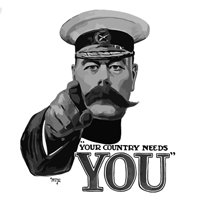
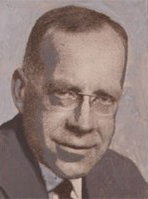
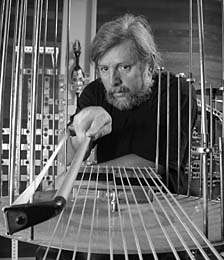
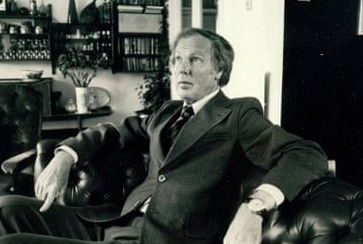
 Added 2023
Added 2023